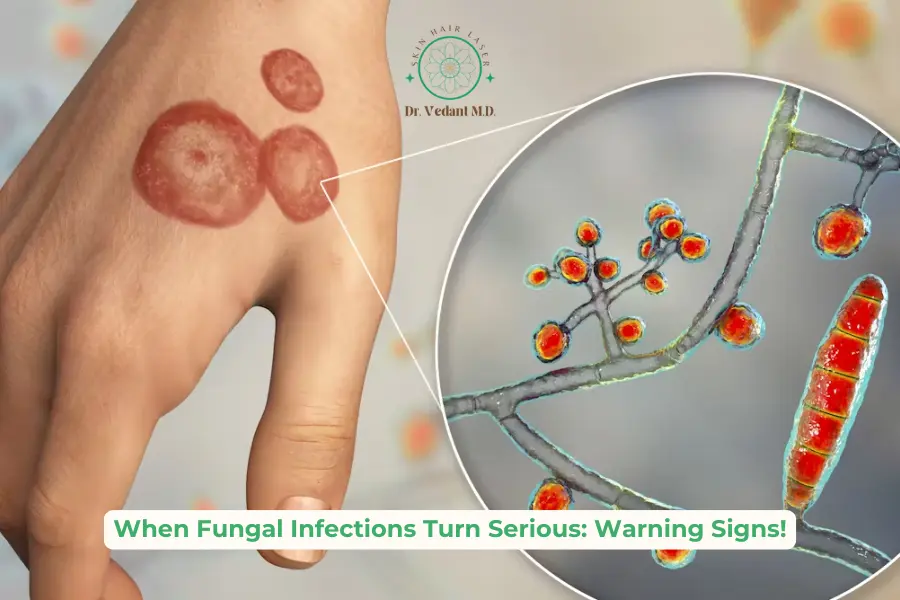
One of the common causes of illness is bacteria and viruses. Generally, most fungi are harmless, but some can affect the skin, cause lung infections, and may also be a cause for other diseases.
So, how do you know when a fungal infection is more than just a mere skin issue?
In this blog, Dr. Vedant Ghuse, the best skin specialist near me that you can search for, shares the warning signs that indicate your fungal infection is getting serious, and when you need to visit a doctor.
An ordinary fungal infection begins in a localised area, between the toes, underarms, or groin. But if the rash starts spreading rapidly all over your body, particularly to the chest, back, neck, or several folds of skin, it might be a sign of a deepening infection. Fungal spores love moisture and warmth and can grow rapidly if not properly treated.
Are you using antifungal creams from a pharmacy, but your infection persists? Recurring infections may mean that the initial treatment was too weak, or you have a weakness such as diabetes, obesity, or low immunity. Oral antifungals and a visit to a dermatologist like Dr. Vedant Ghuse, a leading dermatologist near me for skin, are then required.
The majority of fungal infections are itchy, but if you experience burning, stinging, or pain, the infection has penetrated deeper into the skin layers. These are also symptoms of secondary bacterial infection, which usually will need to be treated with antibiotics as well as antifungals.
If the infected area starts to crack, bleed, or seep pus, this is no longer a benign fungal rash. Open wounds beg for further infection and slow healing, heightening the potential for scarring or damage to deeper tissue. These are symptoms that need immediate medical care.
Fungal infections of the nails, so-called onychomycosis, may make the nail thick, discoloured, brittle, or loose from the nail bed. These infections do not typically respond to topical creams and may require long-term oral medications or medical nail procedures.
Rarely, in the case of low immunity, the infection can get systemic and spread internally. If you have symptoms such as fever, weakness, or swollen glands, it may mean the infection is spreading from the skin and must be treated right away.
Don't let an infection get serious. If your symptoms don't go away after 2 weeks, get worse, or recur again and again, visit an expert dermatologist. Early diagnosis and proper antifungal medication can avoid complications and ensure quicker healing.
Fungal infections may seem minor, but when left untreated or not managed correctly, the condition can worsen. Don’t ignore the signs, they all have a message sent by your body.
If any of the symptoms exist or are persistent, book an appointment with Dr. Vedant Ghuse, a reputed skin dermatologist near me, and get the expert care your skin deserves.